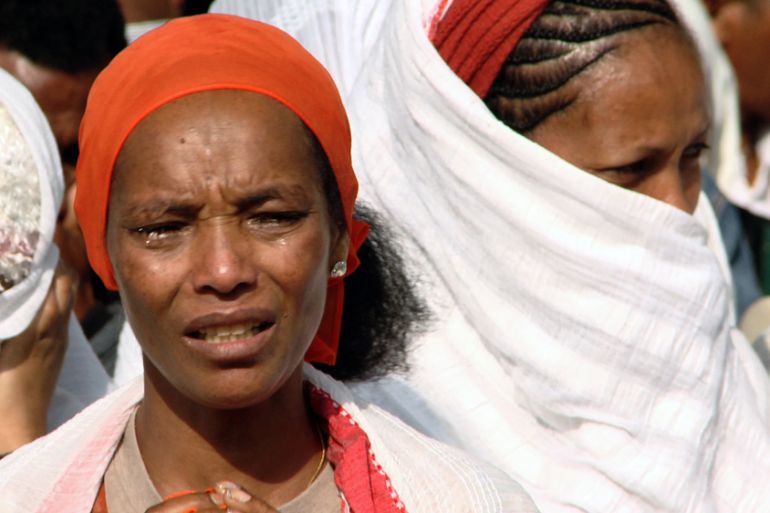
Sound of Torture
Eritrean refugees, trapped and tortured in the Sinai desert, reach out to an activist radio host in Sweden.
Editor’s note: This film is no longer available online.
Since Europe closed its borders in 2006, thousands of Eritreans have tried to flee to Israel by crossing the Sinai desert. But in the Sinai, many are kidnapped by Bedouins and taken to one of the hidden camps where their families are then extorted for ransom.
Keep reading
list of 4 itemsThe Lost Souls of Syria – Part 1
Is the US shipping weapons to Israel tacit support for its war on Gaza?
Nakba remembered: What is the right of return?
Swedish-based Eritrean radio host and human rights activist Meron Estefanos publishes the stories of these camps while recording hostages’ live pleas for help.
I thought it would only be one call. But the hostages saved my number, it circulated from one group to another in different torture camps, and they would call me to tell their stories.
Estefanos produces her radio programme “Voices of Eritreans” from Stockholm. The weekly broadcast is devoted entirely to the hundreds of Eritrean refugees held hostage in wretched conditions in the Sinai desert.
The Bedouins have held sway in the desert ever since the Egyptian revolution, so they kidnap Eritreans making their way to Israel (as a gateway to the West) and demand large ransoms from their families.
We follow Estefanos in her attempts to turn the tide by making telephone contact with hostages and kidnappers alike during her radio show.
The film focuses on the stories of two hostages in particular. Hariti was pregnant when she got kidnapped. We hear the young woman in a desperate phone conversation with Estefanos, and also with her husband, Amaniel, in Tel Aviv. He is frantically doing everything he can to free his badly abused wife and their baby from this hellish torture camp.
Meanwhile, in a second case, the ransom for 20-year-old Timnit has been paid, but no one has heard anything from her since her flight to the Egyptian-Israeli border 18 months ago.
The battle for Hariti’s release and the search for Timnit take Estefanos to Sinai. There, she witnesses first-hand the scars left by the many atrocities and the struggles of those families held hostage by this ongoing nightmare.
FILMMAKER Q&A WITH KEREN SHAYO
Al Jazeera: What inspired you to make this film?
Keren Shayo : It’s an unknown issue that has received no attention, not from any media or political bodies. Human rights organisations have only started looking into this issue now.
Al Jazeera: What impact do you hope this film will have?
Shayo: We hope to raise awareness about this issue and the horrible situations that illegal migrants and asylum seekers experience as they seek safety. We really want to help end this horrible phenomenon of torture and human trafficking or at least help raise awareness that can bring about change.
Al Jazeera: Tell us about a scene in the film that especially moved or resonated with you.
Shayo: The community discussion about whether to pay or not to pay the ransom money. I think it’s the first time we see this kind of inner discussion in the community and it’s a very painful one.
Al Jazeera: Where do the subjects in your film live now?
Shayo: Desalla and Amniel still live in Israel with no legal status. Hariti is with her baby in Sudan. Meron still lives in Sweden and is continuing with her radio work.
Al Jazeera: Can you provide an update on the issues featured in your film?
Shayo: There are only few hostages left in the Sinai desert. It’s hard for the kidnappers to bring in hostages as the military operations are making it difficult. However, the same kidnapping is now happening in Libya, in addition to Egypt. The Libyan ransoms are about $10,000 and in Egypt it is around $7,500.